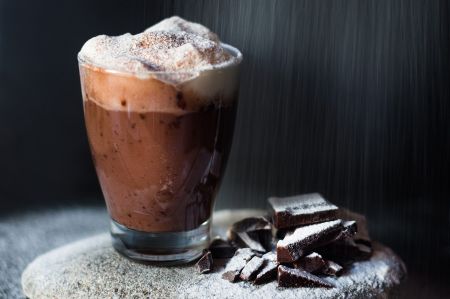Cocoa and migration - globalization in modern world
- Written by Portal Editor
When talking about cocoa, the most common thought is always associated with chocolate or the ever-popular cocoa drink. That's actually the case with us, who like to drink a cup of cocoa in the evening or on the go, if it's traditionally made with milk, not water and comes from the vending machine.
We really don't see such “developments”, which are then sold way too expensively, really not as technical progress, but simply as a rip-off, or better yet, an addiction to more profit. Incidentally, the same applies to the cream, which nowadays almost always comes from a spray can, but is sold as whipped cream at high prices. We are happy to pay a little more if the product and service are right. So how exciting when you come across more interesting information while exploring the area, in this case near Amsterdam, which is also well illustrated and provided with patterns, and also allows you to look at the world of cocoa from a different perspective.
Child labour is still widespread
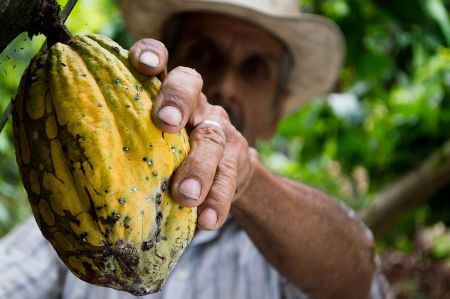 Child labour in cocoa cultivation is still so widespread that even when buying certified chocolate one cannot assume that it was produced entirely without child labour, which unfortunately is still due to our exploitative buying mentality (cheaper, cheaper, etc.) and the resulting purchasing and throw-away behaviour, regardless of whether it is the cocoa, which is "worth nothing" and can therefore be made with water and sweetened powder, or the clothing, which is neither needed nor where one pays attention to origin and production. Clear information might help! Industry's voluntariness is utopia!
Child labour in cocoa cultivation is still so widespread that even when buying certified chocolate one cannot assume that it was produced entirely without child labour, which unfortunately is still due to our exploitative buying mentality (cheaper, cheaper, etc.) and the resulting purchasing and throw-away behaviour, regardless of whether it is the cocoa, which is "worth nothing" and can therefore be made with water and sweetened powder, or the clothing, which is neither needed nor where one pays attention to origin and production. Clear information might help! Industry's voluntariness is utopia!
In Ghana and Côte d'Ivoire, it is still common for the families of the cocoa farmers to let their children work in the fields instead of sending them to school. Or is it more of a compulsion to survive? This is almost always in competition with their schooling. According to a study by the University of Chicago in 2019, 45% of all children of cocoa farmers were involved in child labour. However, the school attendance rate has increased from 58% to 80% (Ivory Coast) and from 89% to 96% in the last 10 years. So, has something changed in our behaviour after all? Are we now actually paying the producer prices? Or do the seals on the packages help, at least somewhat?
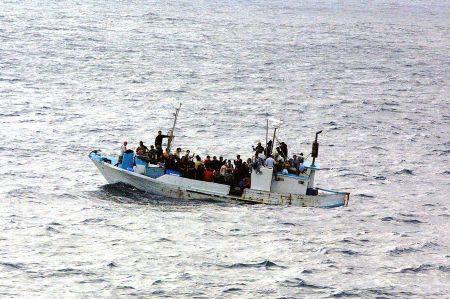 We all complain about refugees who can no longer be accommodated. Lament the suffering of the people on the boats in the Mediterranean, the countless deaths. Pointing fingers at other countries.
We all complain about refugees who can no longer be accommodated. Lament the suffering of the people on the boats in the Mediterranean, the countless deaths. Pointing fingers at other countries.
It is our consumption and price behaviour that is at least partly responsible for the streams of refugees who, at least when all factors are included in the costs, we are now far "more expensive" than providing sufficient work and earnings for people in their countries of origin and we ensure a reasonable livelihood on site.
Cocoa import is just a small cog in this, but it is one.
Clearing of rainforests in Africa and South America
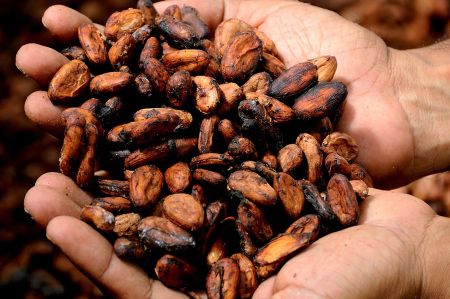 Every day we complain about climate change, scientifically proven and probably no longer reversible, despite the growing number of deniers. Does that make him disappear? What solutions are actually offered by the far right? West Africa has already lost 80% of its rainforest. The reason is the strong population growth in connection with the clearing to create arable land. Is it still up to date when the churches speak of the blessing of birth and population growth? Shouldn't the Catholic Church, first and foremost, long since campaigned for prevention and control, in line with its actual sense of caring for people? But she doesn't even get her abuse cases regulated …. And yet there are still people behind this institution! Or shouldn't she at least continue to flaunt her wealth and splendour or better distribute it to the needy and starving of this world? And it is also about Germany.
Every day we complain about climate change, scientifically proven and probably no longer reversible, despite the growing number of deniers. Does that make him disappear? What solutions are actually offered by the far right? West Africa has already lost 80% of its rainforest. The reason is the strong population growth in connection with the clearing to create arable land. Is it still up to date when the churches speak of the blessing of birth and population growth? Shouldn't the Catholic Church, first and foremost, long since campaigned for prevention and control, in line with its actual sense of caring for people? But she doesn't even get her abuse cases regulated …. And yet there are still people behind this institution! Or shouldn't she at least continue to flaunt her wealth and splendour or better distribute it to the needy and starving of this world? And it is also about Germany.
The most important crop in West Africa is cocoa. For the Ivory Coast, it is assumed that there will be a complete loss of rainforest by 2024. The loss of rainforest is therefore higher in West Africa than in South America. Deforestation is one of the main causes of human-caused global warming, and in addition to the effects on the climate, deforestation also leads to increased species extinction. There are no protected areas.
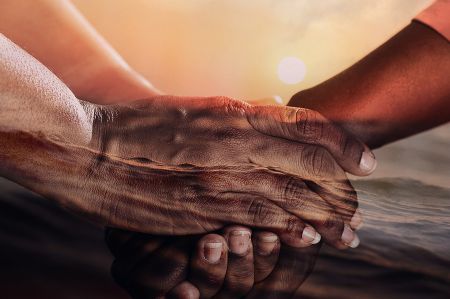 Traces of clay pots found at Santa Ana in the upper part of the Amazon Basin (southeastern Ecuador) show that the plant species Theobroma cacao was present there at least from about 3300 BC. was cultivated. This plant species probably originates from there and was later spread across Central America to Tenochtitlan, today's Mexico City.
Traces of clay pots found at Santa Ana in the upper part of the Amazon Basin (southeastern Ecuador) show that the plant species Theobroma cacao was present there at least from about 3300 BC. was cultivated. This plant species probably originates from there and was later spread across Central America to Tenochtitlan, today's Mexico City.
So, the consumption of cocoa and thus also of chocolate is absolutely fine. So why the discussion about deforestation or child labour, exploitation and the resulting refugee problem and its consequences. Green propaganda? Is voting right more effective?
The only beneficiaries are capital and the big corporations
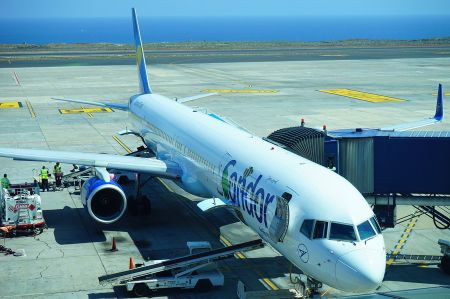 So far, the beneficiaries, especially thanks to German politics, have always only been the large corporations and the capital, who scoop up what is possible, open one tax haven after the next and take care of a sh…. about the people. They have been and will continue to be actively supported by politicians, especially in Germany. They proudly report that Lufthansa has made more than 2 billion euros in profits, but they don't pay taxes on aviation fuel. Politically, they want climate change, less traffic in the air and on the streets, but the Liberals have almost cancelled 350 million for the expansion of cycle paths. And instead of welcoming the long-awaited changes in our dealings with the environment and nature, supporting them and working on our own behaviour, we continue to fly on vacation as if there were no problems, it's only once a year.
So far, the beneficiaries, especially thanks to German politics, have always only been the large corporations and the capital, who scoop up what is possible, open one tax haven after the next and take care of a sh…. about the people. They have been and will continue to be actively supported by politicians, especially in Germany. They proudly report that Lufthansa has made more than 2 billion euros in profits, but they don't pay taxes on aviation fuel. Politically, they want climate change, less traffic in the air and on the streets, but the Liberals have almost cancelled 350 million for the expansion of cycle paths. And instead of welcoming the long-awaited changes in our dealings with the environment and nature, supporting them and working on our own behaviour, we continue to fly on vacation as if there were no problems, it's only once a year.
The income from a balanced kerosene tax, comparable to the petrol or diesel tax, is probably not necessary at all (although it would be fair) and could equip the Federal Republic with a cycle path network that even the Dutch would look at with envy. So why not think the other way around: private individuals pay no taxes on diesel and petrol, since they do not or hardly use them commercially, but the airlines do, since they also make a profit with this business. Or should trucks not pay diesel tax either?
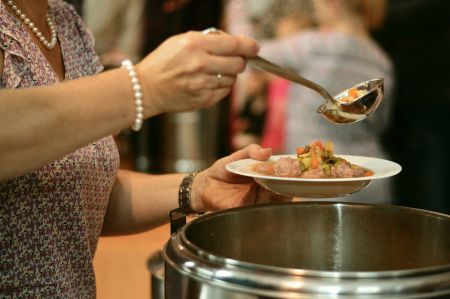 There is a sentence like this: Imagine there is work in the big factory, ….. and nobody goes there. How soon would it be over with “skimming off profits and capping board bonuses! Is that why you are left? Maybe even radical? Not at all, it's just finally time to look at things from other perspectives.
There is a sentence like this: Imagine there is work in the big factory, ….. and nobody goes there. How soon would it be over with “skimming off profits and capping board bonuses! Is that why you are left? Maybe even radical? Not at all, it's just finally time to look at things from other perspectives.
It is depressing to see that people are starving, can hardly lead a life worth living and are often forced to migrate by their own living conditions. But it's at least as depressing here in Germany to have to live off society's garbage because the pension isn't enough. It's good that at least the panels are there. Or? In itself, the necessity and raison of a plaque is a disgrace to this country.
Conclusion only from the point of view of cocoa
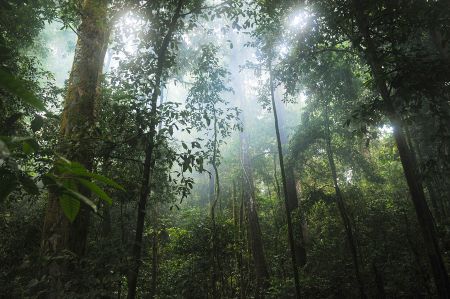 The cocoa plant needs a tropical, humid climate in the rain forest. Around 70% of the world's cocoa production is grown in West Africa, mainly in the Ivory Coast and Ghana. Only 15% come from Central America and South America, the actual area of origin. 90% of the production takes place in smallholder families, it secures the livelihood of about 14 million people and their families, if not many millions more.
The cocoa plant needs a tropical, humid climate in the rain forest. Around 70% of the world's cocoa production is grown in West Africa, mainly in the Ivory Coast and Ghana. Only 15% come from Central America and South America, the actual area of origin. 90% of the production takes place in smallholder families, it secures the livelihood of about 14 million people and their families, if not many millions more.
What if cocoa cultivation is no longer possible? Another 14 million refugees? The cacao tree, its scientific name is Theobroma cacao, or its seeds, the so-called cacao beans of the cacao tree as well as those of other species of the cacao tree genus, are used to make the popular cacao and the equally popular chocolate. Unfortunately, you can't live on cacao alone.
Please read as well:
